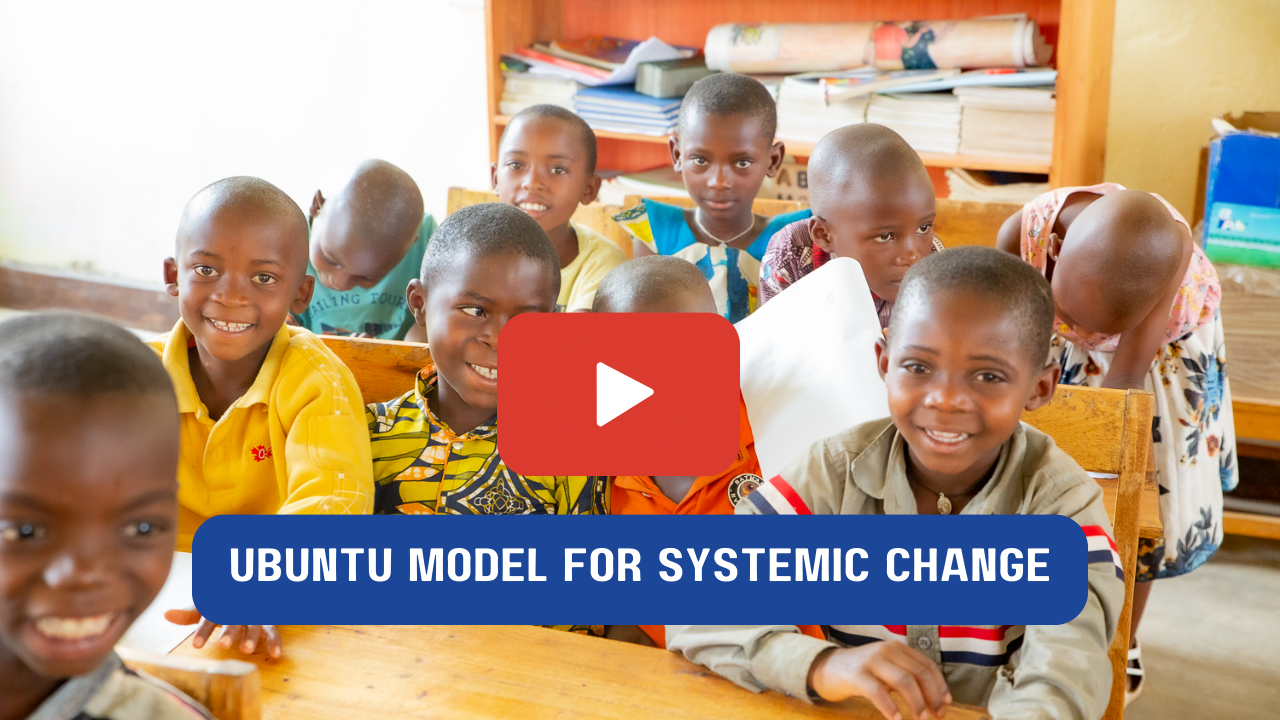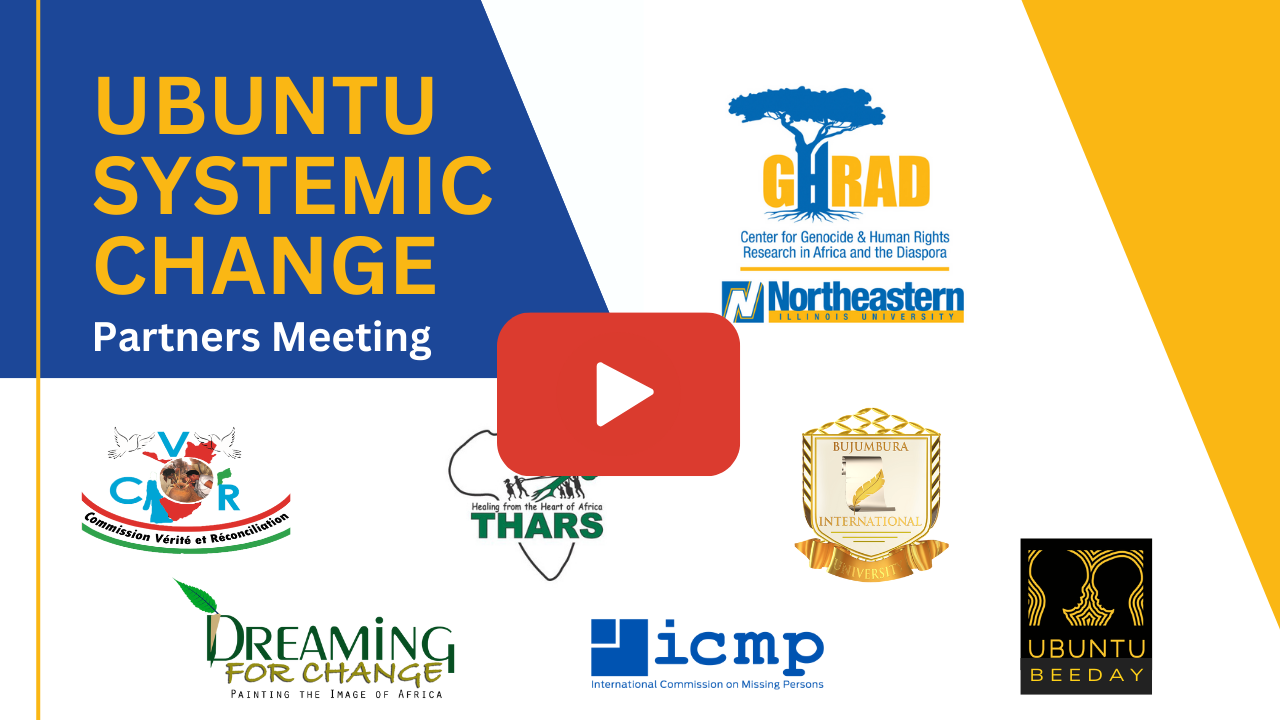Ubuntu Systemic Change
Burundi - A Transformative Model for Change
Grounded in African concepts of Ubuntu and Iziko, GHRAD is working on a project that uses a systemic approach that targets triggers and pressure points, to interrupt cycles of mass violence and transform inter-group relationships leading to a peaceful future.
Critical Problem: Recurring cycles of mass violence in Burundi.
Solution: We are going to expand Burundian capacity, supporting existing organizations in their mission to serve the community.
In the spirit of Ubuntu, we have woven a tapestry of cooperative organizations in Burundi and the U.S. focusing on our Three Pillars: Restorative Justice, Healing and Transformation, and Economic Empowerment. These partners guide us on what they need to help Burundian people effectively.
Pillars
Pillar 1: Restorative Justice (Truth, reconciliation)
- Conservation of remains
- Excavation, protection of mass grave sites, memorialization
- Testimony collection and publication
Partners: Truth And Reconciliation Commission (TRC/CVR), International Commission of Missing Persons (ICMP), and Genocide and Human Rights Research in Africa and the Diaspora (GHRAD) Center (including Dr. Jermaine McCalpin and Eduardo Gonzalez)
Pillar 2: Healing and Transformation (Training the trainer model)
- Culturally relevant therapy services and expressive arts
- Curriculum
- Cross-group activities (across ethnic groups)
Partners: Trauma Healing And Reconciliation Services (THARS), University of Connecticut’s Genocide and Mass Atrocity Prevention Training (HRUCONN), Coming Together Virginia, Artists
Pillar 3: Economic Empowerment (Institutional Change and System Strengthening)
- Capacity-building and Technical Assistance Center for agricultural and urban small business ecosystems
- Small business grants
Partners: Bujumbura International University (BUI), Jackson Quincy Nahayo (BeeDay), and Dreaming for Change (D4C)
Watch the Ubuntu Model for Systemic Change: Interrupting Cycles of Mass Violence video and the Ubuntu Systemic Change Partners Meeting video to learn more about the project and our partners.

